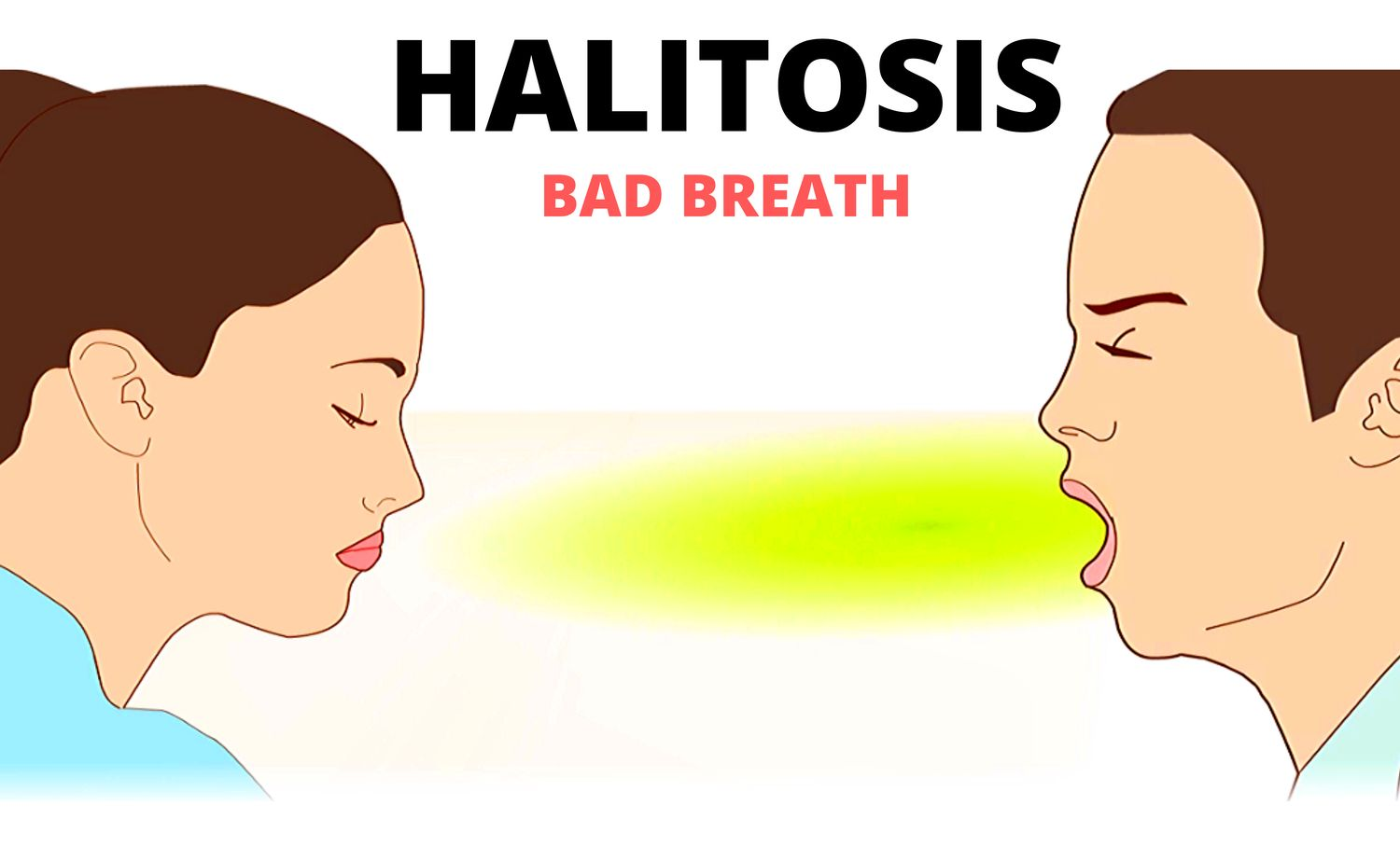Bad Breadth
“Wake up in the morning, brush your teeth, rinse your mouth …”, a saying we have been listening to ever since we were kids. A part of good habits to maintain a good impression. It is no secret that our hygiene habits play not only a role in maintaining our health but also giving a good impression in society. No one wishes to be seen with uncombed hair, dirty clothes or even an unwashed face and so does oral hygiene add to it in a similar way. The moment you wake up from bed, the first thing you want to do is clean your mouth. Why? A common response would be the common bad smell we ourselves experience from our mouth that we seem to despise, let alone it being sensed by others. Our mouth is a gateway to showcasing our thoughts and mental skills, it is our way of communication with our society. So we don’t want to be letting out a bad odor that can affect our social impression. Imagine people avoiding standing close to you or someone addressing your breath in a gathering? Quite an embarrassing experience. However, there is nothing to worry about. Bad breath isn’t anything dangerous or exclusive. So is bad breath common? Yes. Is it always normal? Might be. So, let us uncover and let out everything about bad breath.
Halitosis or commonly known as bad breath is
mostly a physiological occurrence that causes a malodor from the oral cavity
but can be pathologic under certain conditions. It is not a serious condition
from a physiological point of view but can affect a person psychologically. It
can lead to lower self esteem and social interactions.
• Physiologic bad breath
Bad breath is common and occurs due to food
debris, saliva and dead cells in the mouth that undergo putrefaction most
commonly occurs in the morning after sleep and long hours of inactivity of the
mouth. This is commonly called ‘Morning breath'. Another very common and temporary occurrence of bad breath arises
from consumption of certain foods such as onions, garlic, fish, dairy products
etc. Physiologic bad breath is no
serious concern and vanishes as soon as the oral cavity is cleaned.
•Pathologic
bad breath
Bad breath
due to certain conditions that are not normal can be classified as pathologic
bad breath or halitosis in the right sense.
It can further be divided based on the type of location of it’s cause.
It can be
either factors within the oral cavity or systemic conditions.
1)Oral causes :
•Poor oral hygiene leads to build-up of plaque on teeth, gums and
tongue. This plaque contains bacteria, which leads to halitosis. Other
conditions such as dental cavities, also known as caries, harbors bacteria leading to bad breath. In cases of gingivitis and
periodontitis, the bacteria lodged into the periodontal pockets are anaerobic
and can cause reactions leading to bad breath.
• Xerostomia : Decreased
amount of saliva in the mouth can also lead to bad breath. This is called
xerostomia. Decreased amount of saliva leads to
deposition of bacteria and doesn’t flush it. Smoking can lead to lowered
salivary production.
• Infections: Infections affecting the oral cavity like
Candidiasis can also have such an effect.
2)Extraoral causes :
• Infections : Infections of the ear, throat and nose lead to mucus formation in the sinuses that can cause an
unpleasant smell.
• Systemic diseases : Diabetes, kidney diseases, hepatic
disorders, gastrointestinal reflux, etc.
Types of smell : Bad breath cannot be defined as a certain type of smell. It can be acidic, fishy, fruity, foul etc. depending on the cause. For e.g. in cases of diabetes, a fruity odor is experienced.
Treatment :
Treatment of halitosis generally depends upon the etiology and
elimination of it will eventually rid the patient of halitosis.
• In cases of poor oral hygiene,
maintenance of oral hygiene, regular brushing of teeth and scraping of
tongue needs to be done. A visit to the dentist for proper guidance for a healthy oral cavity will aid in achieving best results.
• In cases of oral problems of gingivitis and periodontitis, a dentist guided treatment plan along with
medications.
• For systemic conditions, keeping a regular check and controlling
them would aid in resolving bad breath.
• For xerostomia, the patient is advised to take artificial
saliva. If the patient indulges in the habit of smoking, it needs
to be ceased.
So, bad breath doesn’t mean a bad ‘YOU'. If you are one of those
suffering from it, make sure to go through a check list of the above given
reasons and act upon it accordingly. Good health comes from attention, action
and maintenance. So don’t let bad breath take away your confidence. Your breath
doesn’t define your identity, it only defines
your health status and sometimes not even that. Sometimes, you just got to “Wake up, brush your teeth, rinse your mouth”.
A good smelling mouth
precedes a good smelling body.






Comments
Post a Comment